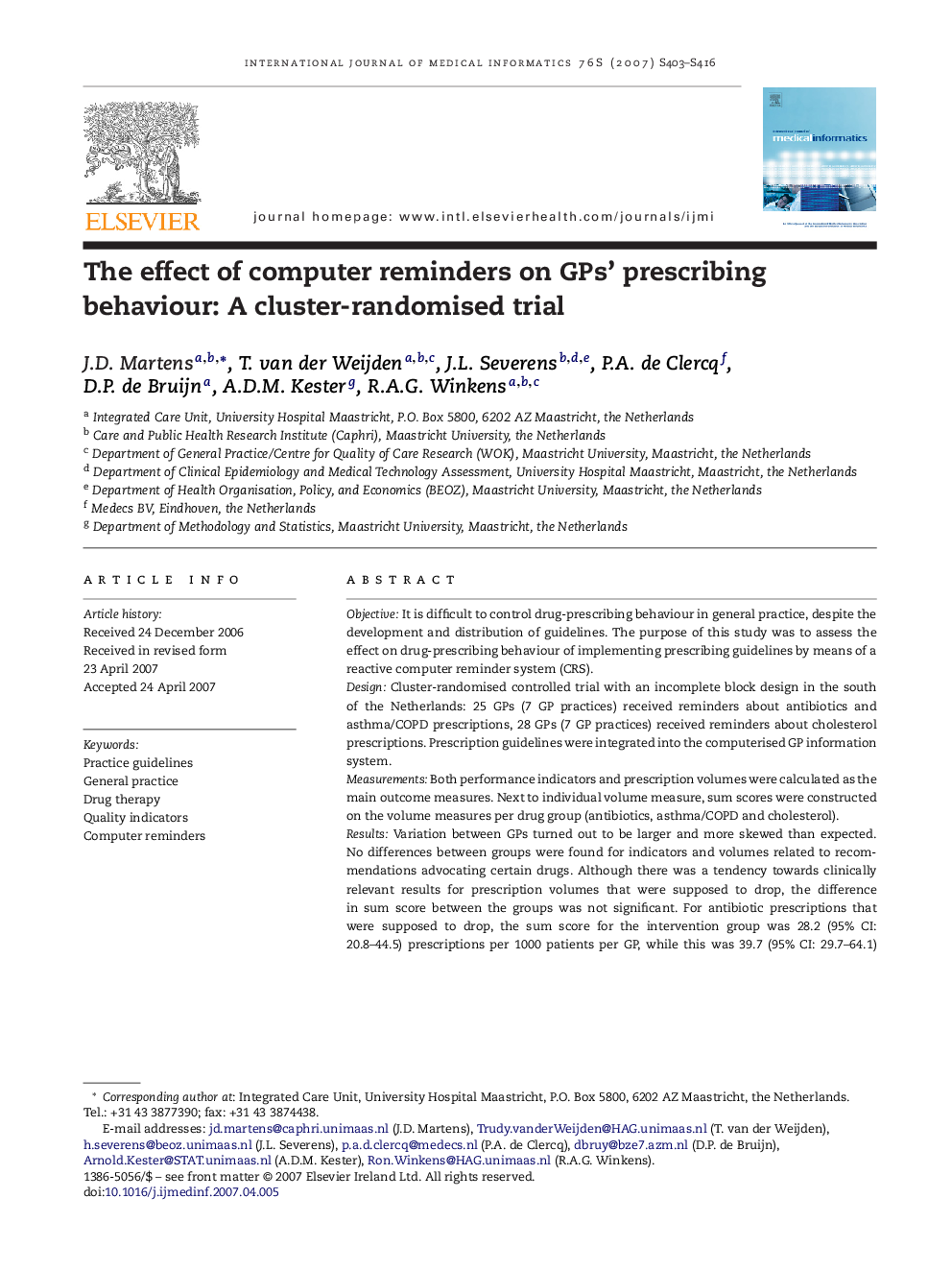| Article ID | Journal | Published Year | Pages | File Type |
|---|---|---|---|---|
| 516411 | International Journal of Medical Informatics | 2007 | 14 Pages |
ObjectiveIt is difficult to control drug-prescribing behaviour in general practice, despite the development and distribution of guidelines. The purpose of this study was to assess the effect on drug-prescribing behaviour of implementing prescribing guidelines by means of a reactive computer reminder system (CRS).DesignCluster-randomised controlled trial with an incomplete block design in the south of the Netherlands: 25 GPs (7 GP practices) received reminders about antibiotics and asthma/COPD prescriptions, 28 GPs (7 GP practices) received reminders about cholesterol prescriptions. Prescription guidelines were integrated into the computerised GP information system.MeasurementsBoth performance indicators and prescription volumes were calculated as the main outcome measures. Next to individual volume measure, sum scores were constructed on the volume measures per drug group (antibiotics, asthma/COPD and cholesterol).ResultsVariation between GPs turned out to be larger and more skewed than expected. No differences between groups were found for indicators and volumes related to recommendations advocating certain drugs. Although there was a tendency towards clinically relevant results for prescription volumes that were supposed to drop, the difference in sum score between the groups was not significant. For antibiotic prescriptions that were supposed to drop, the sum score for the intervention group was 28.2 (95% CI: 20.8–44.5) prescriptions per 1000 patients per GP, while this was 39.7 (95% CI: 29.7–64.1) for the control group (p 0.2). For prescriptions asthma/COPD that were supposed to drop, the sum score for the intervention group was 1.1 (95% CI: 0.6–2.6) prescriptions per 1000 patients per GP, while this was 2.2 (95% CI: 1.4–4.3) for the control group (p 0.1). On three specific recommendations (on quinolones for cystitis, corticosteroids for CPOD, and antibiotics for acute sore throat) significant differences were found.ConclusionsThis study turned out to be underpowered due to high inter doctor variation in prescribing behaviour. Nevertheless, computerised reminders sometimes have a favourable effect on restricting certain drugs that are not or no longer indicated in general practice.
